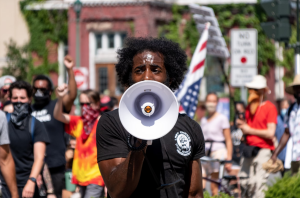How Money Can Buy You Happiness
Rue du Faubourg Saint-Honore is a narrow, mile-long thoroughfare lined with boutiques like Chanel, Prada, and Cartier. It's the most fashionable street in Paris, the most fashionable place on earth. It's where travel budgets go to die (happily). On a vacation with my wife last fall, I landed in the street's Hermes flagship store. Ordinarily I'm a frugal guy. My purchases are largely utilitarian. But I'd just capped off a banner year at work, and it felt empowering to waltz into one of Paris's most exclusive boutiques to treat myself to a bonus in the form of a $200 necktie.I spent half an hour perusing the color-coordinated wall of neckwear, settling on a fiery-red pattern stamped


Rue du Faubourg Saint-Honore is a narrow, mile-long thoroughfare lined with boutiques like Chanel, Prada, and Cartier. It's the most fashionable street in Paris, the most fashionable place on earth. It's where travel budgets go to die (happily).
On a vacation with my wife last fall, I landed in the street's Hermes flagship store. Ordinarily I'm a frugal guy. My purchases are largely utilitarian. But I'd just capped off a banner year at work, and it felt empowering to waltz into one of Paris's most exclusive boutiques to treat myself to a bonus in the form of a $200 necktie.
I spent half an hour perusing the color-coordinated wall of neckwear, settling on a fiery-red pattern stamped with sky-blue running shoes set into an elegant matte finish. The slim piece of silk was hand-stitched and soft as a feather, and it formed a dimpled knot with little effort.
That tie has become my signature adornment for any significant occasion. I simply feel more successful whenever I wear it.
(You'll find lots of tips like this in The Better Man Project, the new book from the Editor-in-Chief of Men's Health. It's a jam-packed user's guide to every aspect of a man's life, with more than 2,000 body hacks and fitness, nutrition, health, and sex secrets. All to make you a better man in every way that counts.)
Now, even if you don't share my affinity for Hermes neckwear, there are surely similar things that you covet. Acquiring those things can make your life just a tiny bit better, especially when you know their value.
Example: In a taste-testing study, participants ranked wine they believed to cost $90 as superior to wine they thought was $10. The thing was, they were tasting the same wine each time. The high price, it seems, improved their enjoyment.
Of course, you're familiar with the other kind of purchases, the ones you wish you could take back.
Maybe it's a $300 jacket you wore only once, or a $30,000 boat that sits on a trailer in your backyard. It makes you wonder: Are there rules for planning a smart purchase? Guidelines that guarantee every fiscal sacrifice will elevate your life?
Well yes, in fact, there are.
Consider what the world's top researchers can tell you about buying a better life.
Invest in Your Future Memories
The most straightforward way to convert dollars to pleasure is to spend them on travel, adventure, or events, says Thomas Gilovich, Ph.D., a professor of psychology at Cornell.
“Every financial investment that you make in an experience keeps on paying dividends once that experience is over,” he says.
You retell the stories to coworkers, reminisce with the people who were with you, and think back on them when you find yourself in a pointless meeting.
And unlike most material purchases, experiences are completely unique to you. After all, thousands of people have the same TV or car you have, but nobody has your specific memory of that Airbnb room in Istanbul.
“Although material goods physically last longer, the happiness they provide fades,” says Gilovich.
(Get closer to buying the things, and the experiences, you want with these 6 strategies to Boost Your Salary by $33,800.)
Even experiences that haven't happened yet can bring you happiness. In a study from last year, Gilovich asked people to describe the feeling of waiting for an experiential purchase or a material purchase.
The result: Anticipating an experience brought significantly more feel-good mojo. So book a cheesemaking class instead of buying a fancy cheese board, or pick up concert tickets instead of new speakers.
Gear Up for a Life of Adventure
So should you stop buying physical things? Live like Pope Francis? Well, that's not going to happen.
And anyway, it's not necessary. Despite Gilovich's research, not all stuff is junk. Some of it can make your life better.
Consider a study published last year in the Journal of Consumer Psychology: Objects that make future experiences possible, the researchers found, provided a level of delight similar to that of the experiences themselves.
As long as you plan on using them, things like musical instruments, hiking boots, or a unicycle (hey, no judgment) can make you happier. This is likely because these items bestow a feeling of competence, and they sometimes help you participate in experiences that will connect you to others, says study author Darwin Guevarra.
For instance, a $1,500 bike will probably make you happier than a $1,500 watch will. The watch is a status symbol, while the bike lets you imagine yourself taking long rides over remote country roads with a group of friends.
(Related: 3 Purchases That Will Help You Live Longer.)
Or maybe you even envision the finish line of your first century ride. Regardless of whether you ever hit that 100-mile target, striving toward it can make your life feel more purposeful.
Anchor Your Best Days
Where does my Hermes tie fall on the happiness spectrum of purchases? Should I have spent that money on a boat ride on the Seine instead of a fancy cravat?
I don't think so, because every time I wear that tie, I'm transported back to Paris. I'm strolling that fancy street, acting like I belong, and looking $200 flashier at dinner with my wife later that night.
“Every time you wear your tie, you can still feel that excitement,” says Ryan Howell, Ph.D., a cofounder of the consumer spending site Beyond the Purchase and Guevarra's coauthor on the spending study.
And therein lies the second way that material goods can bolster your experience of life: They transport you back to the exceptional moments in which you bought them. They're artifacts of your good life.
In that sense, it's less about the item than it is about the memory it conjures, says Howell. It's why when the Super-Rich Reveal the Best Buck They Ever Spent, they get misty-eyed about the stories behind their favorite purchases, not the price tag.
An expensive bottle of whiskey is going to taste a hell of a lot better if you buy it on the Kentucky Bourbon Trail than if you bring it home from the liquor store down the street. And a pricey piece of art will look better on your wall if you buy it during a vacation to New York City instead of on eBay on a lonely Friday night.
Spend Big–but Only When It Counts
The truth is, I'd go broke if I dropped $200 every time I wanted a souvenir to remember something by. And according to Howell, I shouldn't waste my money on every small upgrade I can afford. “Middle-grade acquisitions” do little to budge the happiness needle, he says.
“Upgrading from a $5 bottle of wine to a $15 bottle won't bring much extra pleasure. You have to go big.” Before you do that, ask yourself two questions:
1. How memorable does this moment really need to be?
The more likely you are to want to retell the story a decade from now, the better off you are dropping some coin.
(Related: Are You a Money Moron? Take the quiz and find out.)
2. Is the difference between affordable and expensive significant? “Moving 10 rows from the nosebleed seats is not likely to change how memorable the game is,” says Howell. “But moving to the first row–now that will stay with you.”
Granted, most of us will have to do plenty of time in the cheap seats before we can afford the front row. And that's okay.
“You should stay thrifty until you decide to do something memorable,” says Howell.
In other words, try to keep most of your expenses low so that when you occasionally choose to drop $200 on a necktie in Paris, you'll still feel good about it.
SOURCE: – Read entire story here.







